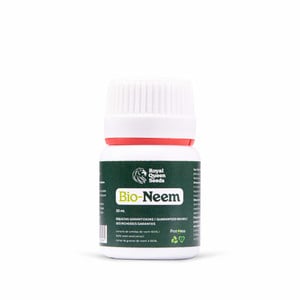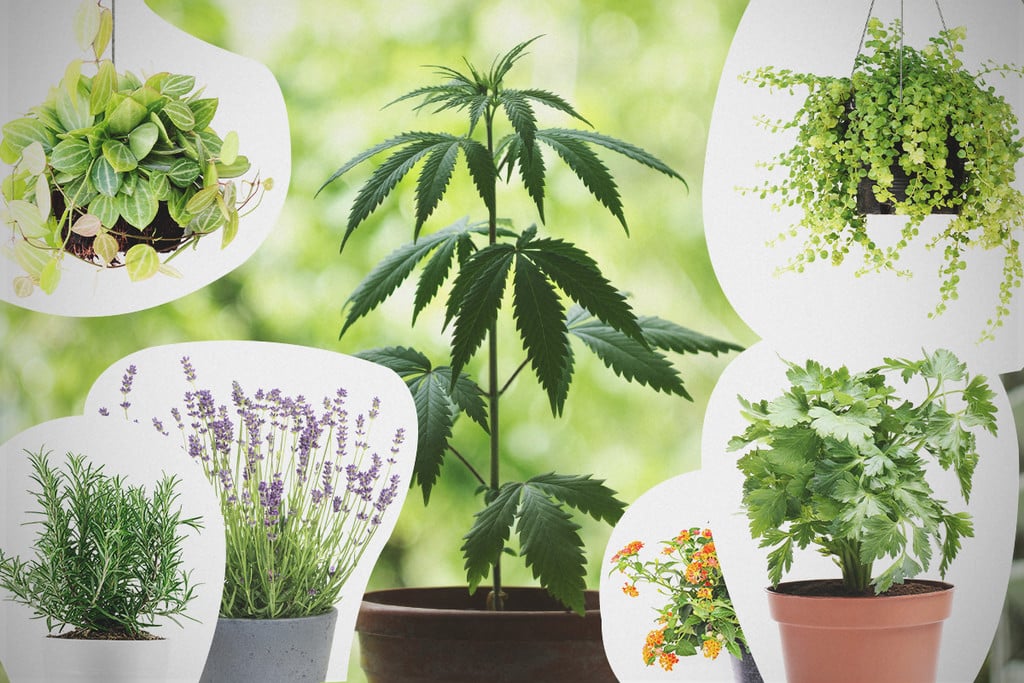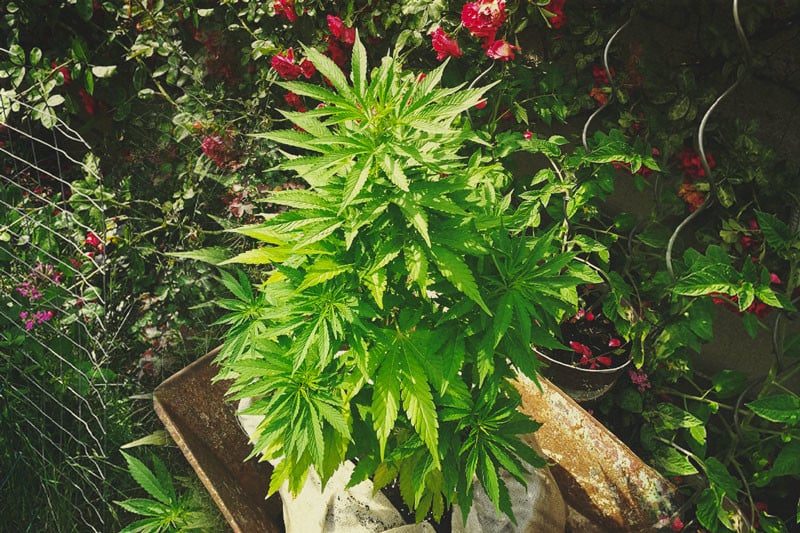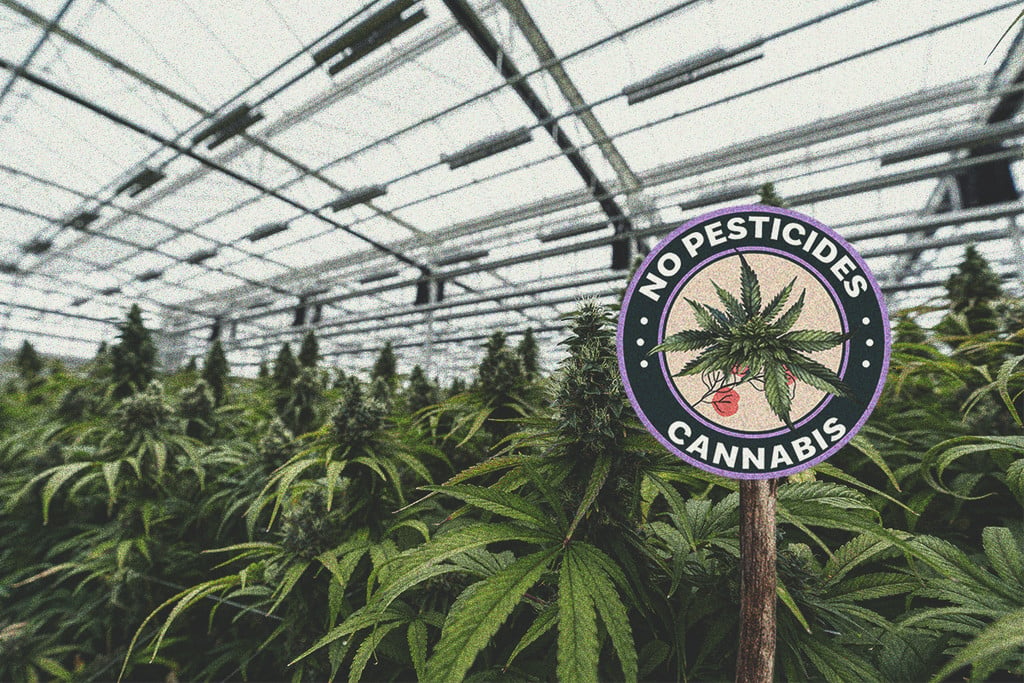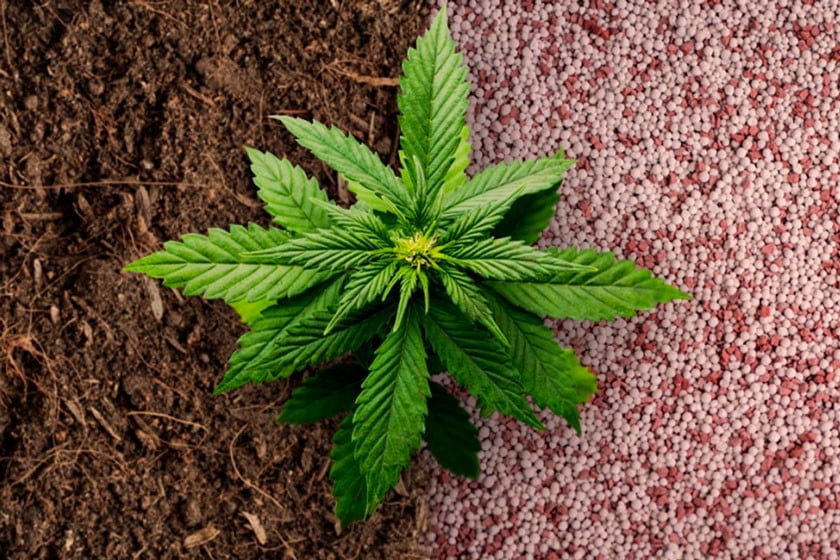.
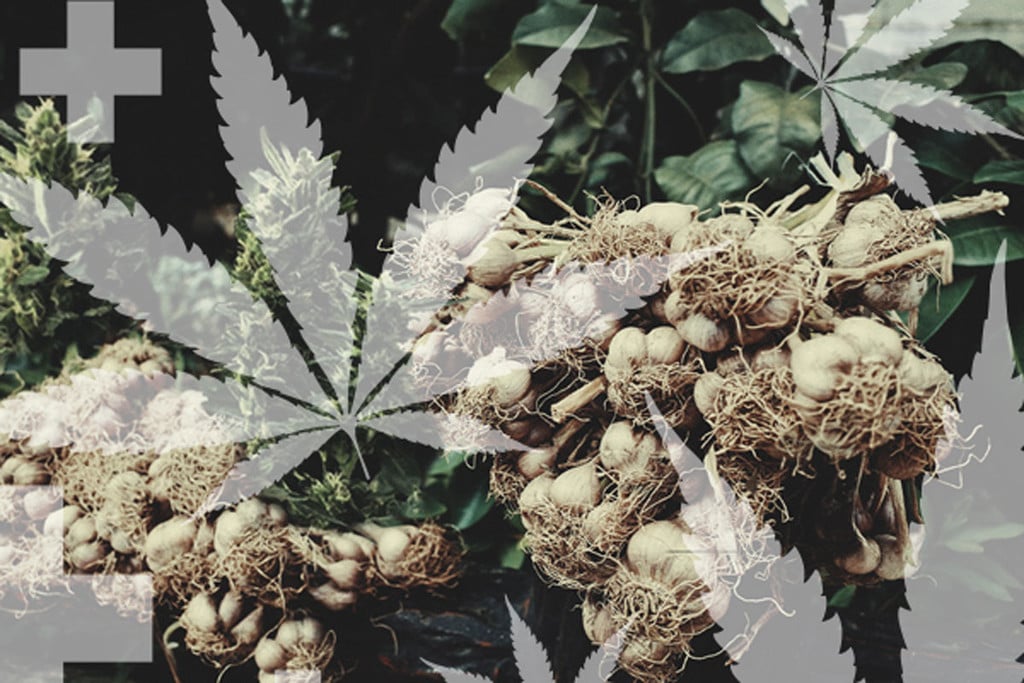
Homemade Natural Insect Repellents To Fight Off Cannabis Pests
Have you spotted a crew of aphids running rampant of your cannabis plants? Or maybe you've noticed squadrons of whiteflies congregating in your greenhouse? Use these natural insect repellents to put an end to the threat.
These organic pesticides will stop cannabis pests in their tracks.
Contents:
Cultivators need to be on the lookout for pests when growing outdoors. No matter where in the world you are, there will be many forms of insects, animals, and fungi waiting to chow down on your crop.
There are several preventative measures that growers can take to stop infestations from taking hold. Companion planting is used to deter insects and distract them from weed plants, and beneficial insects can be introduced to hunt down and eliminate pest species.
When these systems fail or haven’t been implemented, it doesn’t take long for pests to lay waste to a cannabis crop. An effective way to save plants from being destroyed is to administer insect repellents. It’s common within agriculture for farmers to use chemical pesticides and fungicides to do the job. These chemicals work, but come at a price. Many pesticides are linked to health issues in humans and end up washing into the waterways where they cause harm to wildlife and the environment. Plus, do you really want to smoke weed that’s been sprayed with pesticides?
By making your own insect repellent at home, you can use natural substances that combat pests without damaging your health or the environment.
1. Neem Oil Is Effective At Killing Bugs
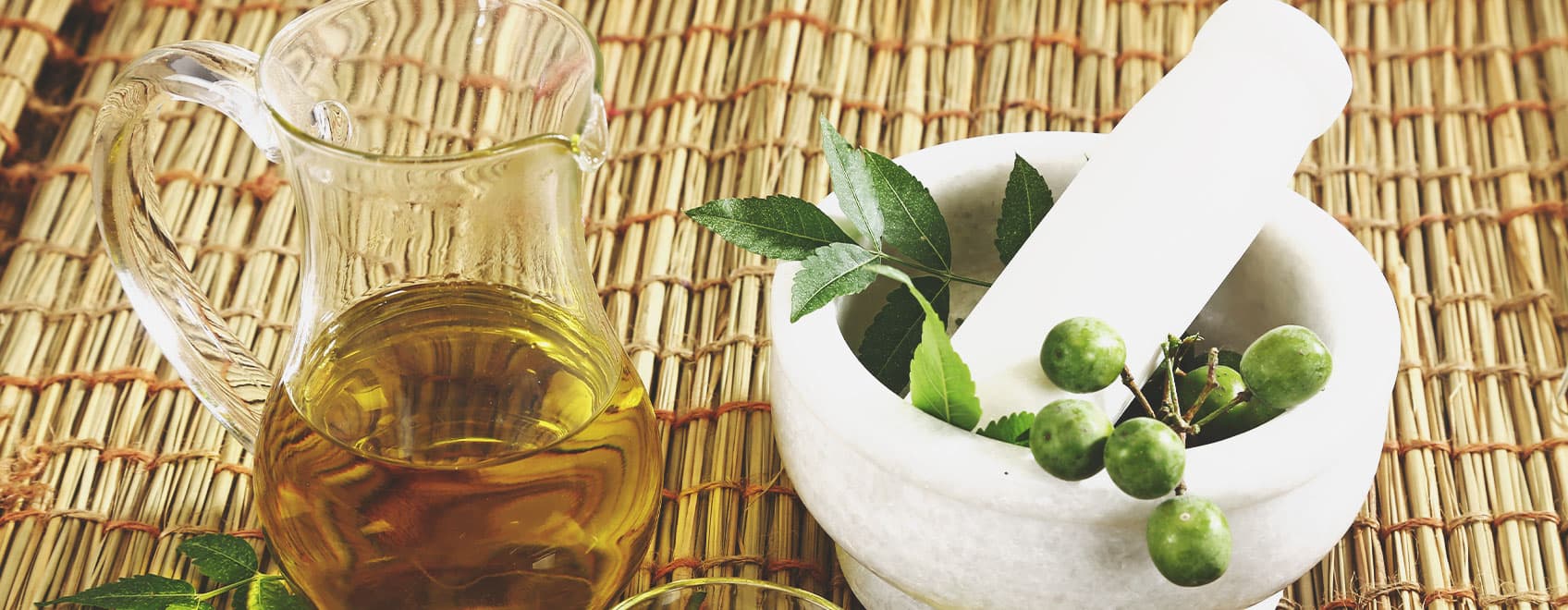
Neem oil is commonly used as a biopesticide by organic farms and is effective against a whole host of pests, including aphids, whiteflies, mites, fungus gnats, and leaf miners. Neem oil can also control fungal infections such as powdery mildew. Unlike synthetic pesticides, neem oil doesn’t damage surrounding wildlife such as ladybirds, mammals, and birds.
Neem seeds contain the chemical azadirachtin, which occurs in volumes of 0.2–0.4%. This molecule works as an antifeedant and repels feasting insects and grazing animals. To make neem spray, you’ll need to source a high-quality oil. Try and find a product that is 100% pure, cold-pressed, and free of additives.
Ingredients
- 5ml neem oil
- 1 litre water
- 2ml organic liquid soap
Directions
Simply add 5ml of neem oil to 1 litre of water. You’ll also need to add 2ml of organic liquid soap to allow the oil to mix with the water. Transfer the solution into a spray bottle and apply to affected plants.
2. Garlic Targets Pests, But Spares Ladybugs
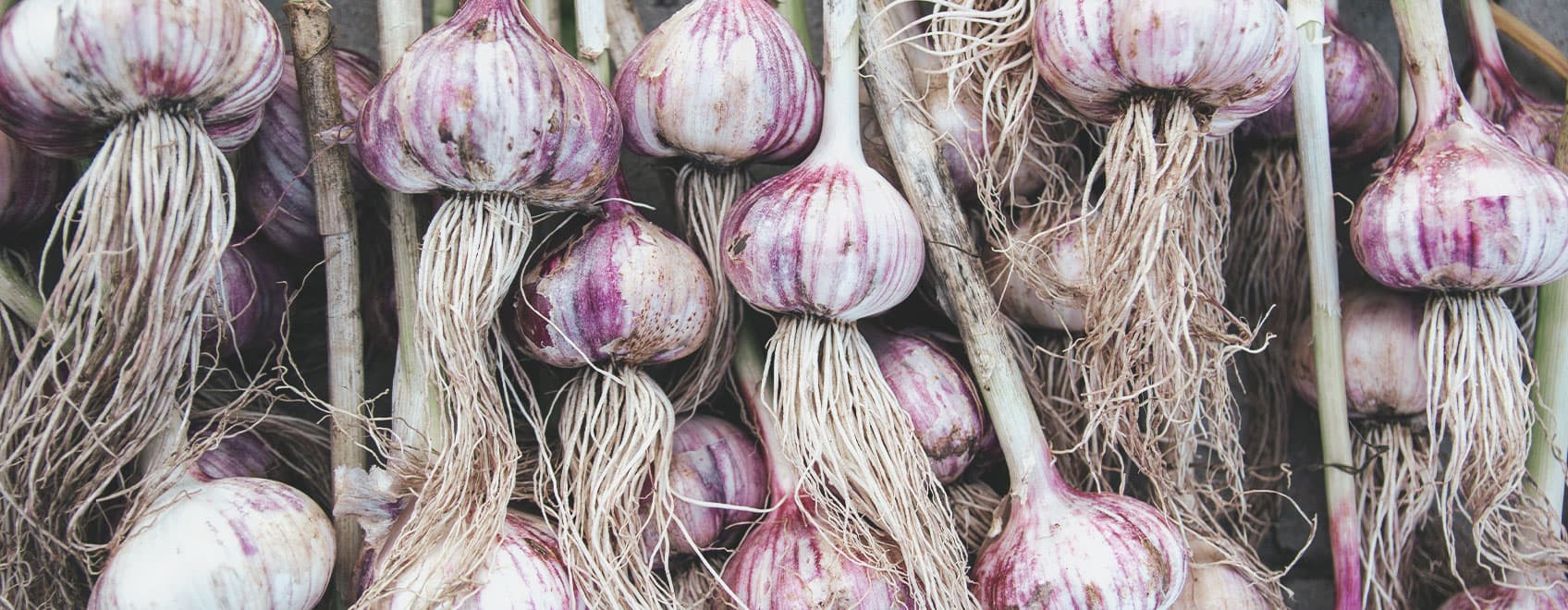
Garlic is used as a biopesticide within agriculture and has a broad spectrum of use. Several constituents within the cloves have been identified as potent insecticides. Garlic works well to deter pests whilst leaving beneficial species like ladybugs unharmed. To make a garlic-based spray, follow the recipe below.
Ingredients
- 2 garlic cloves
- ½ cup olive oil
- 1 teaspoon organic liquid soap
- 2 litres water
- Cheesecloth
Directions
Blend the garlic cloves with a splash of water and leave to infuse for a day. Strain the liquid using a piece of cheesecloth and add the garlic water, olive oil, and soap to 1 litre of water. Scoop up 1 cup of the solution and add it to the remaining litre of water. Fill up a spray bottle with this solution and apply to plants as required.
3. Tomato Leaves Contain Aphid-Killing Alkaloids
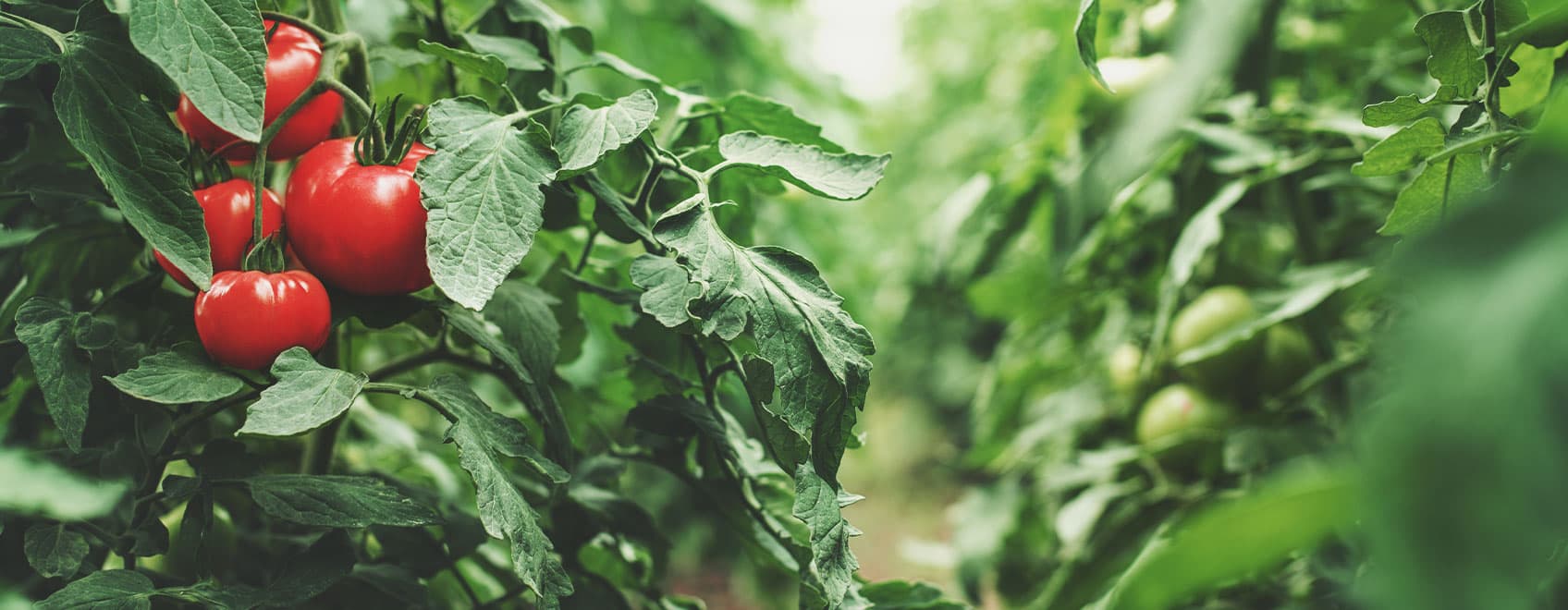
Tomatoes seem like innocent plants. They produce bright red, tasty fruits and smell magnificent. But the leaves are a different story. Tomatoes are a member of the nightshade family alongside the notorious belladonna plant. Although far less poisonous, tomatoes carry the family name with the chemicals in their leaves. This part of the plant contains alkaloids that can repel hoards of hungry aphids.
Ingredients
- 2 cups chopped tomato leaves
- 4 cups water
- Cheesecloth
Directions
Add 2 cups of chopped tomato leaves to 2 cups of water and set to soak overnight. Strain the water through a piece of cheesecloth to remove the spent leaves. Add another 2 cups of water to dilute the solution. Fill up a spray bottle and spray on aphids to stop them in their tracks.
4. Essential Oils Will Send Pests Running
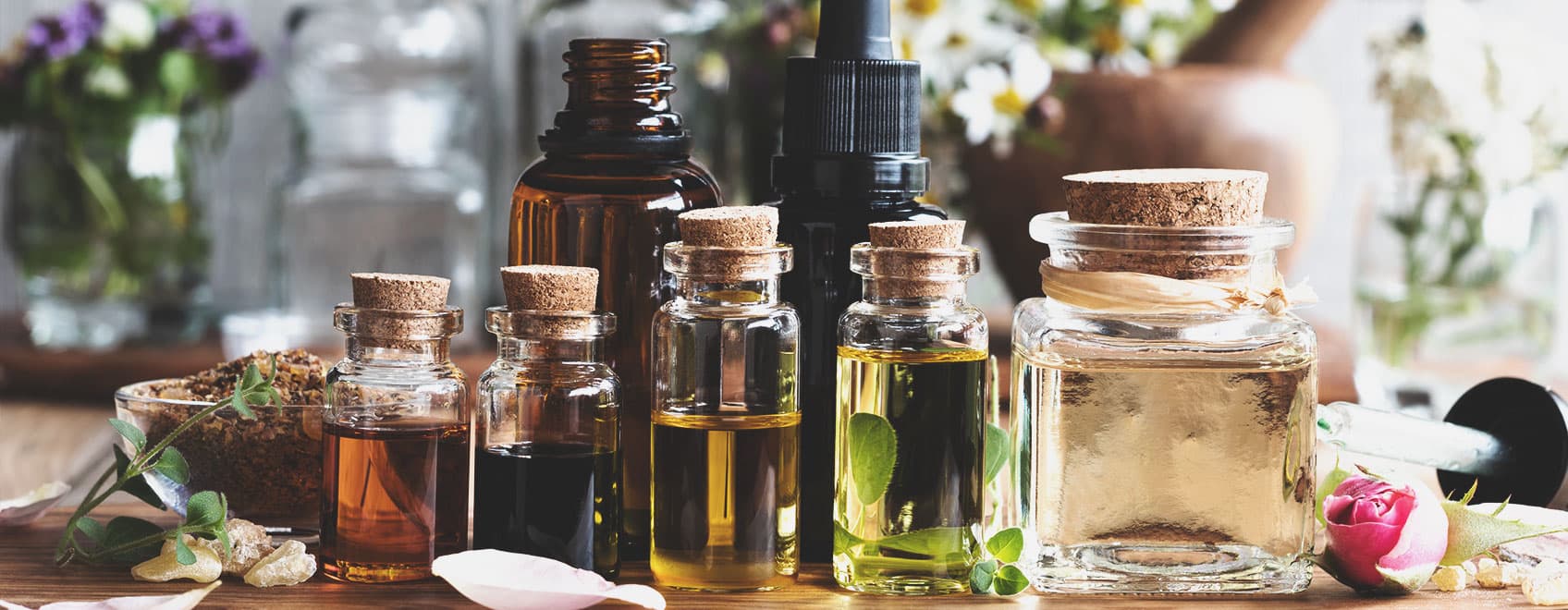
Essential oils are potent plant extracts rich in terpenes. These aromatic molecules are produced by plants to defend against hungry insects in nature. Therefore, it makes perfect sense that a spray composed of essential oils would work well to deter pests. The essential oil from peppermint, eucalyptus, and rosemary are among the most potent. This natural insect repellent is particularly effective against aphids, whiteflies, spider mites, and ants.
Ingredients
- 1 teaspoon eucalyptus essential oil
- 1 teaspoon peppermint essential oil
- 1 teaspoon rosemary essential oil
- 1 litre warm water
- ½ teaspoon organic liquid soap
Directions
Mix all 3 essential oils together in a small bottle and shake well. Scoop up ½ teaspoon of this mixture and add to 1 litre of warm water. Add ½ teaspoon of organic liquid soap to emulsify the solution. Spray on affected plants to deter the pests mentioned above.
5. Superfood to Humans, Enemy to Pests: Turmeric
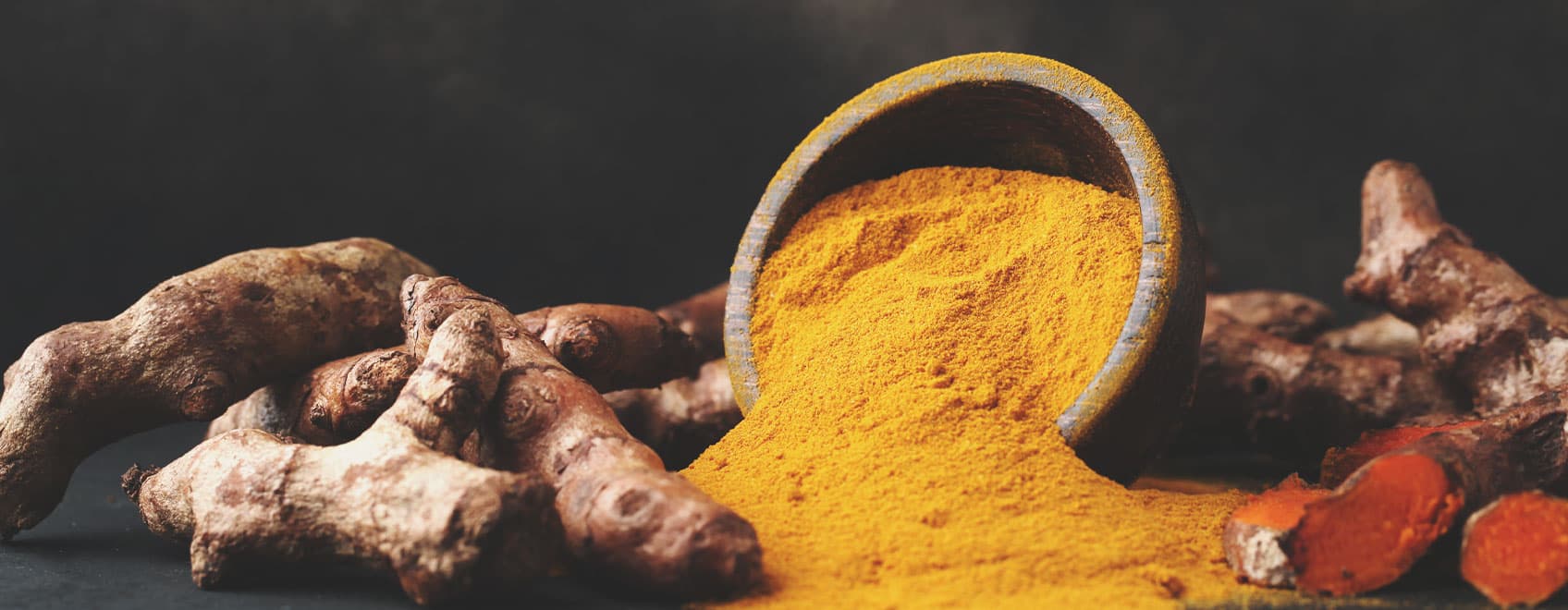
Turmeric is arguably considered one of the most effective natural nutritional supplements. This is thanks to its powerful antioxidant and anti-inflammatory effects. It is also useful in many ways for plant health—especially for cannabis.
Turmeric contains bioactive materials that have insecticidal, pesticide and insect repellent properties. Curcumin is responsible for the yellow colour of turmeric, but it is also the primary active chemical that acts as a natural pesticide. As a result, turmeric will repel a wide range of common garden bugs, including ants and mosquitos.
Ingredients
- 20g Tumeric
- 1L Water
Directions
You can use turmeric as a natural pesticide in powder form or as a spray made with water. To make the spray, simply mix 20g of turmeric with 1 litre of water. Shake the bottle well, and the solution is ready to use.
You can also sprinkle some turmeric powder around the plant base and leaves. Or spray the plant with your turmeric water solution. If you are growing flowering or fruiting plants, avoid spraying the bloom sites as the yellow colour of the spray may stain.
The Benefits and the Power of Organic Pest Solutions
There are dozens of reasons to use natural pesticides. Firstly it’s kinder to the environment. Going organic reduces pollution and stops new chemicals from entering your growing environment and plants.
There are many excellent products you can make that will help you raise lush and healthy cannabis plants free from the clutches of insect pests. In addition, organic gardening practices, such as using natural pesticides, make you a better grower.
You need to understand your growing media, the insects you are trying to avoid, and the plants in your grow room. For devoted growers, this isn’t seen as a chore. Quite the opposite in fact, for many it is a crucial benefit of the organic process.


























